Do you need completely customizable and extremely flexible knowledge base software? Are you looking for MediaWiki alternatives? If so, you came to the right place.
No doubt, most employees want to get into the work that matters while breaking away from emails. Fortunately, online project management systems and online collaboration tools came into play. They centralize scheduling, communication, and tasks happening around project work.
Speaking of knowledge base software, MediaWiki is one of the top choices. However, if you are looking for alternatives, you can find a lot of them. This article will discover the different MediaWiki alternatives and see which one will walk best for your organization.
So let’s get started!
MediaWiki Overview
MediaWiki refers to documentation and collaboration software used by thousands of organizations and websites. It is initially designed for Wikipedia and written in PHP. It is popular in the “Education & Reference” category.
With MediaWiki, you can collect, analyze, and organize knowledge. Then, you can make it available to people with ease. This free online collaboration tool is reliable, customizable, flexible, powerful, and multilingual.
This open-source server-based wiki engine is feature-rich and scalable. It uses PHP to display and process data stored in the SQL database. It utilizes tons of configuration settings and extensions to keep information well-organized. It also delivers many layers of caching.
MediaWiki Alternatives
There are plenty of MediaWiki alternatives to choose from, including:
Klutch Knowledge Base – Best for startups, salesteams, agencies, and companies of any size
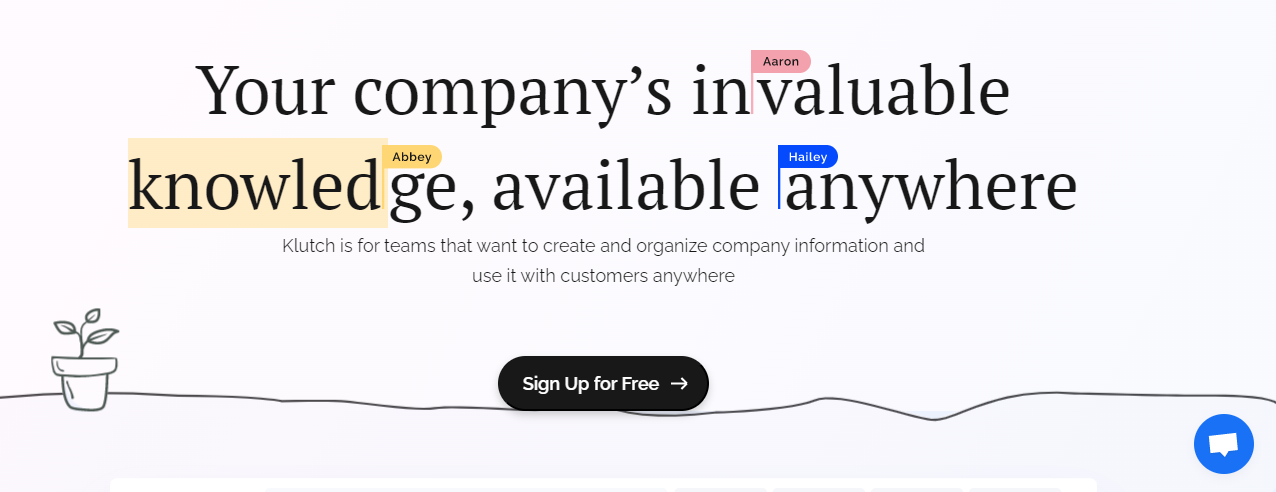
Price: Free
Klutch is a knowledge base software that helps companies manage their teams efficiently and productively. It has a user-friendly UI with no coding required. You can add, edit, and manage all your company information and documents and allow your teams to access them 24/7 even while on mobile. This is perfect for remote teams, sales teams, startups, agencies, and more.
Klutch offers a real-time collaboration for teams where everyone who has access can give comments and manage the information. You can include pages for company documents, employee records, onboarding files, tutorials, canned responses, and many other essential information. It helps to hire a knowledge manager, but you can easily do it on your own especially if you have a small team to manage.
Pros:
- Well-written pages and canned responses that you can customize
- Free to use with limited features. See features and how you can upgrade to Pro here.
- Google Chrome extension for better accessibility to information and canned responses
- Real-time collaboration, version control, comments, and more
- Gmail integration
- Slack – coming soon
Cons
- Free plan has limited features of only up to 50 items and up to 1GB storage
- Klutch is pretty new, but it has all the amazing and easy-to-use features to jumpstart your knowledge base
JetBrains – Best for teams who want to improve process, project, and code
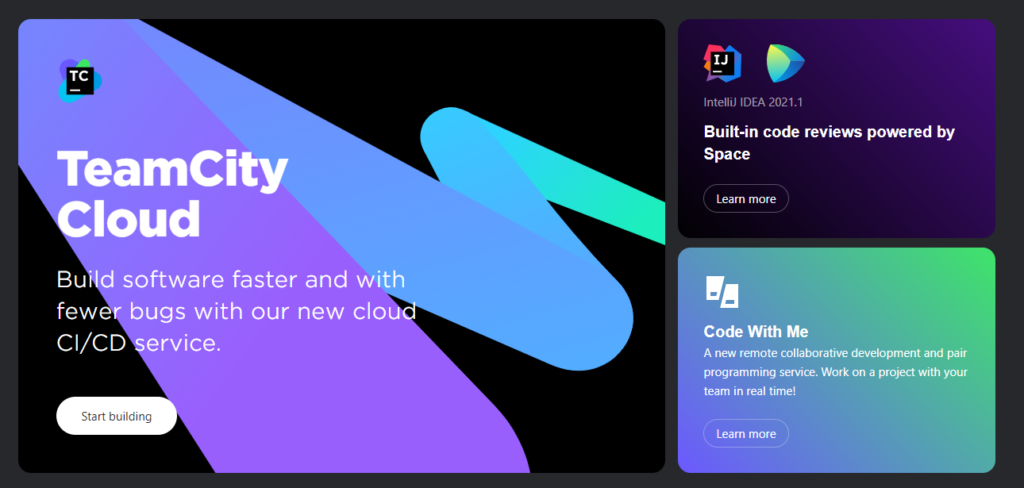
Price: Starts at $49/user/month
JetBrains enables you to automate your workflow to analyze code while tracking the progress easily. With JetBrains, participating in discussions and managing reviews remotely is possible. The software lets you explore any new changes.
If you have new team members, they can quickly adjust and get familiar with the project. This software helps you spot design flows and spread responsibilities for smooth project collaboration. Regardless of the size of your team, the software can handle all your project management and online collaboration needs.
Pros:
- Easy to set up and scale
- Integrate apps and services with ease
- Discover project-wide risks
- Detect design flows
- Keep up with changes and updates
- Participate in the discussion and manage reviews remotely
- Workflow automation
Cons:
- Limited output options
Kipwise – Best for companies that want to improve employee onboard process
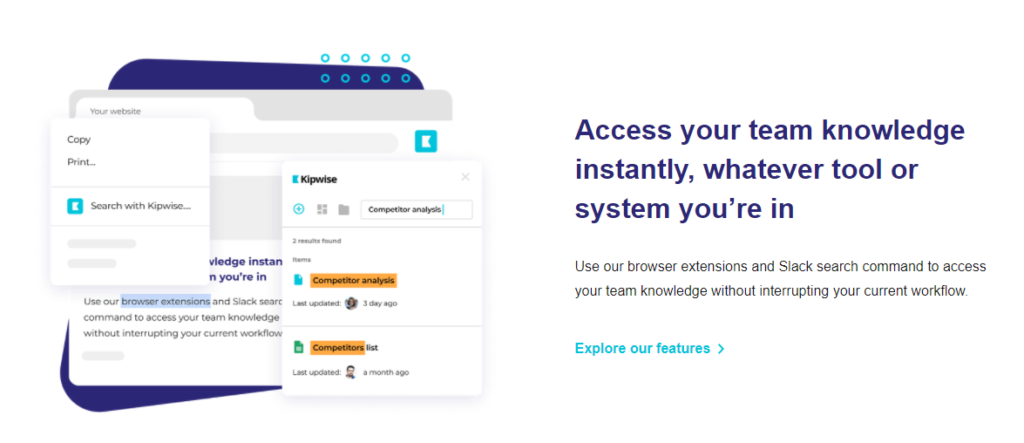
Price: Startup ($15/month); Pro ($59/month); Premium ($129/month), Enterprise (custom)
Kipwise helps you easily create an online knowledge hub necessary for improving the employee onboarding process. It enables you to bring together all the information from your team members in one place. It features a real-time collaboration editor, allowing multiple people to edit a page simultaneously.
This knowledge management tool seamlessly integrates with Google Drive, Slack, and more. In return, you can create a team knowledge base quickly from daily communication. You can even set designated reviewers for content to ensure that it is up-to-date and accurate.
The software is easy to navigate alongside a flexible folder structure. It has Smart Kipwise Bot that helps to automate your flow. This bot delivers the best possible answers from the knowledge base and then saves critical team knowledge automatically.
Pros:
- Seamless integration with Google Drive, Slack, and more
- Build a team knowledge base easily
- Handy slash commands, Slack actions, and direct Slack sign-in
- Provides content review flow
- Real-time collaboration editor for simultaneous editing
- Organize knowledge hub pages into subfolders and folders
Cons:
- Table formatting needs improvement
Wrike – Best for enterprises with remote employees
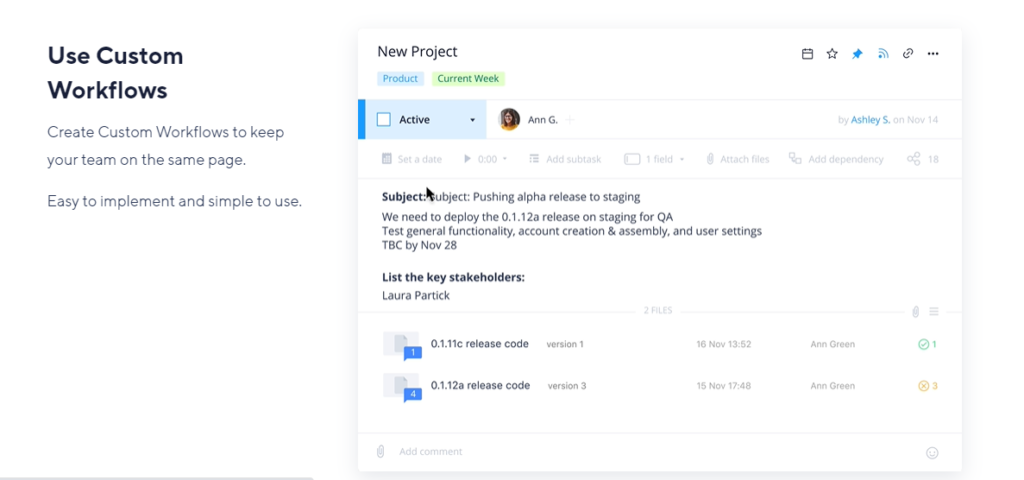
Price: Professional ($9.8/month); Business ($24.8/month)
Wrike is one of the leading collaborative work management platforms that will help your company operate at its best regardless of your employees’ location. If your employees work In a remote environment, this enterprise-grade software ensures smooth collaboration while delivering efficiencies.
The software connects over two million users and more than 20,000 customers to geographically dispersed teams. It ensures that your entire organization is adaptable, agile, and aligned. It defines powerful work management software as it covers professional services teams, project management teams, and creative and marketing teams.
This versatile online collaboration tool is powerful enough to meet all your enterprise needs and flexible enough to help project managers from different departments. You can easily configure it with any work style, team, and department. As a result, everyone can plan, manage, and finish work at scale.
With Wrike, you can do the work you need to complete with any tools, such as Adobe, Microsoft, or Salesforce while staying connected with the software. It will empower your team through an excellent set of tools, integration, features, and tools enabling operational excellence. Plus, this software comes with reliable security features to give you peace of mind while running your company.
Pros:
- Easy to use
- Manage projects and ongoing work
- Special account types dedicated to professional services and creative/marketing teams
- Smooth planning of projects and collaboration
- Project Risk Prediction that used machine learning
- Document Processing that scans documents and extracts text to become an editable format
Cons:
- Difficult to pick the right plan without assistance from customer care
Basecamp – Best for companies looking for high flexibility level at reasonable price
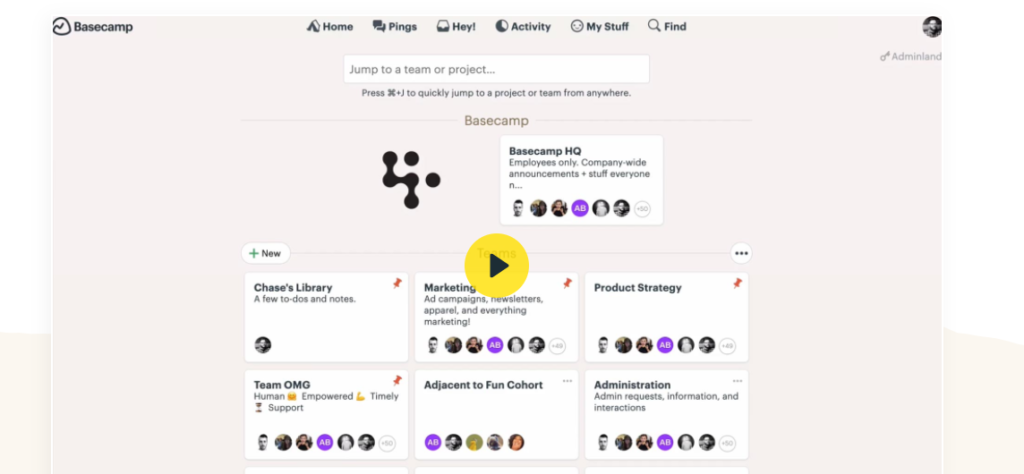
Price: $99/month; $999/year for unlimited projects and unlimited team members
Basecamp is a highly flexible online collaboration tool that enables you to keep track of all the announcements, discussions, files, deadlines, and tasks. It allows you to view detailed reports of how much every team member has assigned to them. Plus, you can easily reassign any tasks if you see that a member is unexpectedly unavailable or overloaded.
This project management and online collaboration software facilitate the discussion and conversation. You can run it in a web browser. However, you can also install it, and it only takes a few minutes to complete the setup.
You can choose a team or an organization team for the account. It lets you customize the spaces for common project types, including product launches, upcoming events, or redesign. It also includes reporting tools. It allows you to generate reports showing assigned or overdue tasks.
Pros:
- Supports integration with multiple applications and services
- Easy to use and highly flexible
- Keep track of all things happening around work
- Affordable for large teams
Cons:
- No proofing tools
- Limited reports
Slite – Best for teams who wants to share and collaborate on notes

Price: Free version; Pro Plan ($8/user/month); Quip ($30/5 members/month)
Slite is what your team needs if they want to share and collaborate on notes efficiently. It allows you to create multiple spaces dedicated to shared notes, whether related to general business matters, departments, or projects. Plus, you can even keep private notes in the account.
Once the notes are shared, you and your team can start collaborating and editing those notes. The entire team can discuss those notes in the comment section. The online collaboration tool comes with applications for macOS and Windows, but you can also run it in a good web browser.
Slite features template notes called “Slite Shapes,” including Product Features, Weekly meetings, Employee Onboarding, and more. You can copy these templates into your account. The software also supports Slack integration.
Overall, Slite is a reliable and stable tool with a responsive design at reasonable costs. It also comes with a well-structured interface.
Pros:
- Different spaces dedicated to shared notes
- Keep privates notes in an account
- Easy to set up
- Applications for macOS and Windows
- Well-structured interface
- Copy templates in an account in one click
Cons:
- Only supports Slack integration
Clarizen – Best for large rrganizations that needs combined project management and online collaboration functionalities

Price: Enterprise ($45/month); Unlimited ($60/month)
Clarizen combines the functionalities of online work management and project management, making it suitable for large enterprises and organizations. It only takes a few minutes to set up an account, and you are ready to invite other collaborators, establish a project, and start adding deadlines or tasks.
Since it handles project management with ease, creating your own templates is possible. You can also take advantage of the pre-fabricated templates you can use for general business cases like planning for an event, product launch, or tradeshow.
The user interface for adding deadlines, assigning someone or a team to complete tasks, or setting up projects is functional. This enterprise-grade collaboration software enables you to share views, including dashboards, reports, project views, module views, ad roadmaps.
Pros:
- Open APIs
- Quick setup
- Easy to navigate
- Includes chat application
- Combines project management and comprehensive work management functionalities
Cons:
- Expensive
- Not so responsive and fast
Outline – Best for teams who requires durable documentation
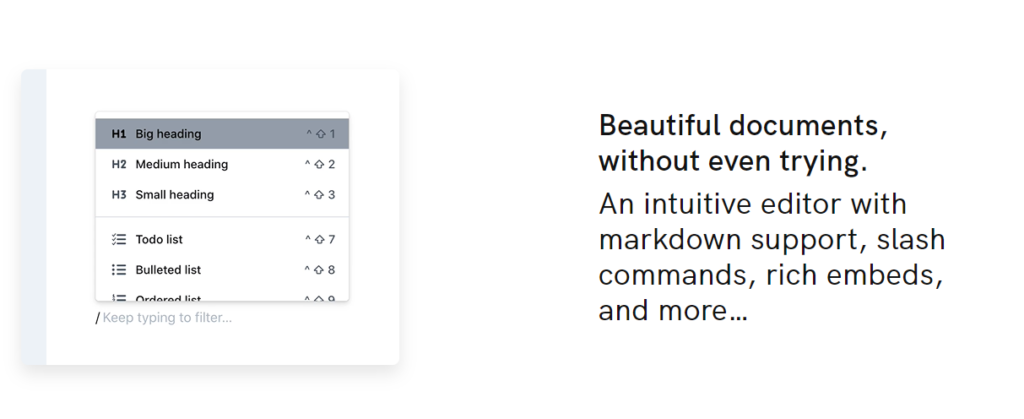
Price: Free version; $10/month
The Outline is ideal for an organization that requires a modern team knowledge base for meeting notes, sales process, support answers, documentation, and more. It is built to be easy to use and fast. The editor enables you to write a great document, structure information with ease, and search across the team knowledge base in a few seconds.
This knowledge base software supports integration with the tools you use every day. It also allows you to set up a webhook with Zapier, sign in with G-Suite, or search within Slack. Plus, it supports larger teams with read/write, groups, and user permissions to user provisioning and collections via Slack SSO or G-Suite.
Pros:
- Full-text search
- Collaboration tools
- Ideal for remote teams and teams requiring robust documentation
- Easy to use and fast
- Functional editor
- Supports larger teams
Cons:
- Plugins are sometimes confusing
JIRA – Best for software developers and agile teams

Price: Free version; Standard ($7/user/month); Premium ($14/user/month); Enterprise (Custom)
JIRA is more than just a project management tool; it also has bug tracking functionality. This is what makes it popular among software developers. It also efficient project management solutions for legal, finance, HR, operations, marketing, and more.
This software is built for Scrum and agile project management. It enables project managers to understand which tasks cause bottlenecks or run smoothly easily. With the custom workflows, your team can create a visual representation of their tasks. As a result, project transparency and accountability are improved.
Pros:
- Powerful, agile tools
- Issue management and bug tracking
- Reliable reporting
- Highly customizable
- Supports different use cases
- Safe and secure
Cons:
- Not ideal for non-technical users
- Limited collaboration tools
- Lacks timeline views
Nuclino – Best for teams who needs a unified real-time workspace
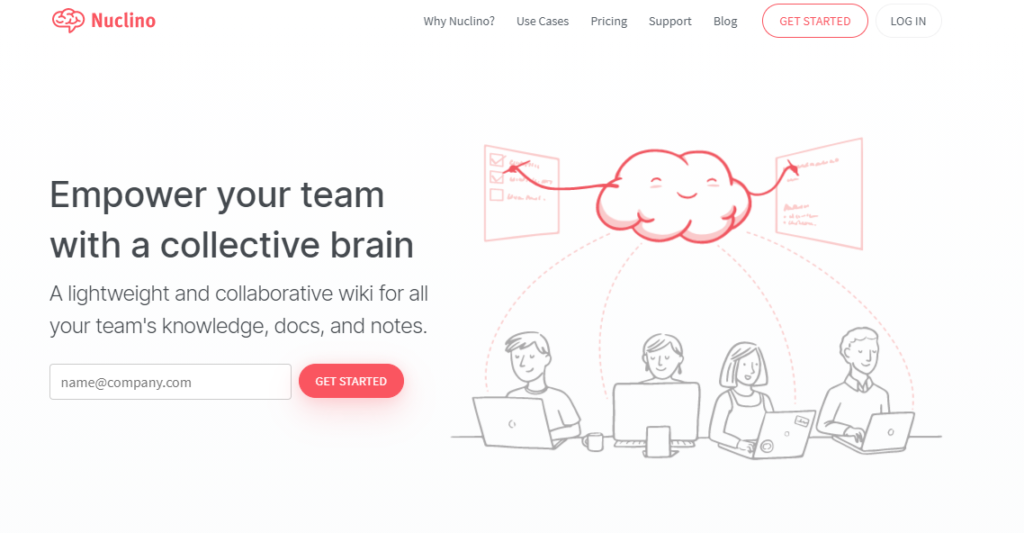
Price: Free version; Standard ($5/user/month)
Nuclino enables you to organize and share your knowledge base in teams with ease. It lets you connect with other collaborators and create real-time documents. As you use the graph, board, and tree view, you can visually explore and organize knowledge.
This online collaboration software is ideal for decision-making, documents, product requirements, meeting notes, and more. It features a WYSIWYG collaborative real-time editor. It also enables you to have a visual representation of the knowledge in a graph.
Pros:
- Easy to set up and configure
- Helpful workplaces, allowing to segment information
- Link to external documents
- Real-time collaboration
- View history and export content into PDF or word formats
- Great search interface
Cons:
- Formatting options require some improvements
- No storage caps
Podio – Best for teams looking for completely customizable online work hub
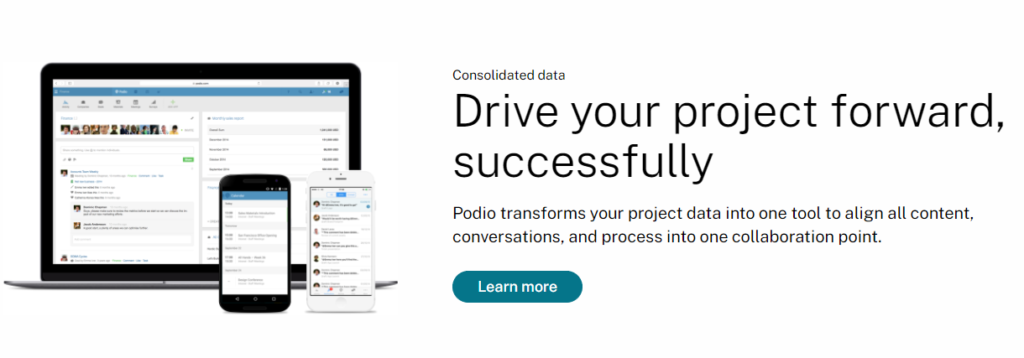
Price: Free version; Basic ($9/month); Plus ($14/month); Premium ($24/month)
Podio is a completely customizable and extremely flexible hub for communication and work. Through this software, you can easily create an account. Adding functionality is very straightforward by building your own applications or choosing the premade apps.
You can find these premade applications within the Apps Market. They are organized by business type: Software Development, Sales and CRM, PR and Communication, Marketing, IT Management, Community Management, Business Development, and more.
This software can create Automated Workflow. It also features web forms, allowing you to create and host on web pages and collect customer feedback.
Pros:
- User friendly
- Impressive marker of premade applications
- Centralized business aspects in one place
- Extremely customizable and flexible
Cons:
- Limited features from a free account
- Lacks some features, such as markup tools and time-tracking widgets
Conclusion
There you have it! Which one suits your organization best? Hopefully, this post will help you reap the benefits of online collaboration and project management tools. Whether you want to create a real-time workspace for your team or automate workflows, there is an ideal software for your needs.



